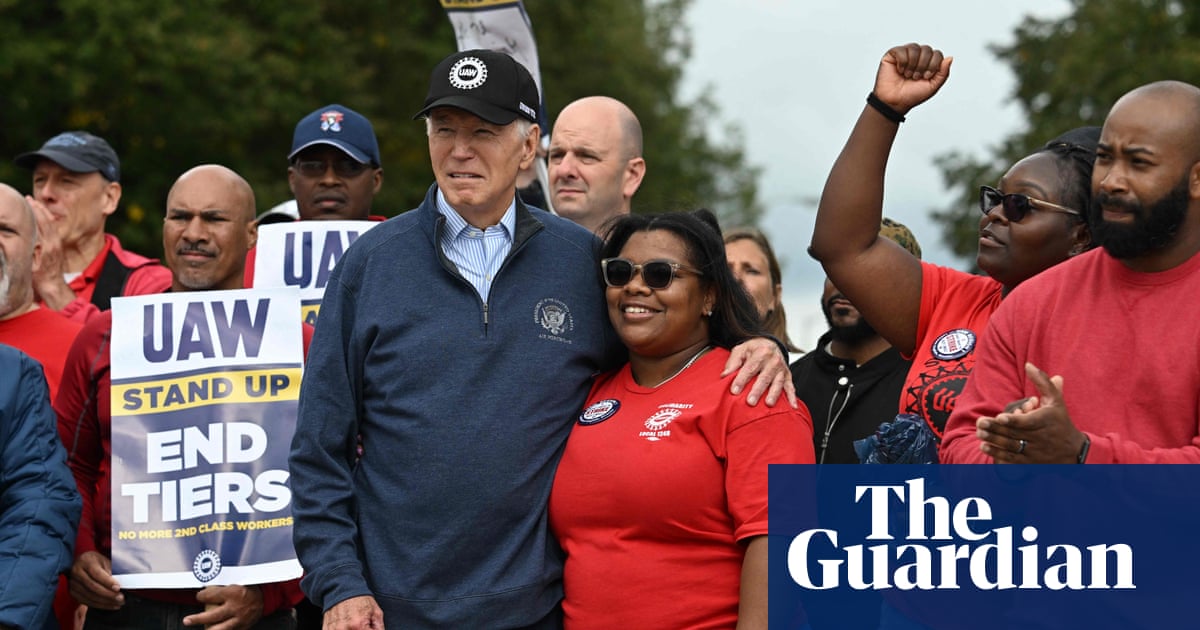Former President Donald Trump is going to Detroit to try to make the case that he’s got the backs of striking autoworkers — but his record on labor issues has union advocates fuming all over again.
Trump has a long history of courting blue-collar workers both before and after his term in the White House, especially in denouncing plant closings and rewriting trade deals that he said had undermined U.S. manufacturing. But in some of those fights, he claimed credit for wins long before the results were clear — only for the labor side to lose in the end.
Trump took a victory lap, for example, when an electric vehicle manufacturer moved into a shuttered General Motors plant in Ohio in 2020, but the venture hit the skids earlier this year. He also browbeat Carrier Global Corp. to keep jobs in Indianapolis that the company had planned to move to Mexico, but
hundreds of workers ended up being laid off anyway.
Meanwhile, his administration pursued policies that were hardly union-friendly — limiting employees’ rights to organize in certain types of workplaces and lowering the standard to rid workplaces of a union, for example. And when the UAW waged a six-week strike against GM in 2019, Trump mostly stayed silent, even as his administration
quietly floated the possibility that he might intervene on the union’s behalf.
That may explain why his Detroit visit next week is getting such a
chilly reception from nearly all union leaders, especially UAW President Shawn Fain — even as it’s
unnerving Democrats who fear that, once again, Trump is outflanking them in appealing to Rust Belt workers bruised by the global economy.
The former president’s campaign believes these voters remain gettable,
as they were in 2016 and
again in 2020 — and that slicing away at President Joe Biden’s labor advantage is key to winning battleground states like Michigan. But those voters should pay attention to Trump’s actual record, Sen. Debbie Stabenow (D-Mich.) told POLITICO.
“Donald Trump is full of nothing but broken promises, and Michigan’s autoworkers haven’t forgotten,” she said.
Asked for comment, a Trump spokesperson sent a long list of the former president’s economic accomplishments, saying his policies “created more than 1.2 million manufacturing and construction jobs” and helped “bring back supply chains from overseas.”
These are some of the key episodes that shaped Trump’s history with labor unions and the auto industry, an issue now front and center in the 2024 campaign:
Claiming victory and moving on
Trump, who
said during his inauguration speech that “rusted out factories” were “scattered like tombstones across the across the landscape of our nation,” has latched onto specific manufacturing plants and demanded they stay open. But that hasn’t always worked out in the long run.
Perhaps most notably, shortly after the 2016 election and even before he was sworn in as president, Trump spent weeks pressuring Carrier to keep workers at a plant in Indianapolis instead of moving them to Mexico.
The company
eventually agreed after being offered state incentives, brokered by Trump and Mike Pence, then the governor of Indiana.
But despite boasts that he had saved jobs and that the company would possibly even add more, the plant’s workforce — once about 1,400 people — was ultimately cut in half, according to Mike Millsap, United Steelworkers’ top elected officer in Indiana.
(full article online)
The former president’s plans to show up for autoworkers are more overt than Joe Biden’s. But Trump’s track record has its holes.

www.politico.com

 www.google.com
www.google.com



